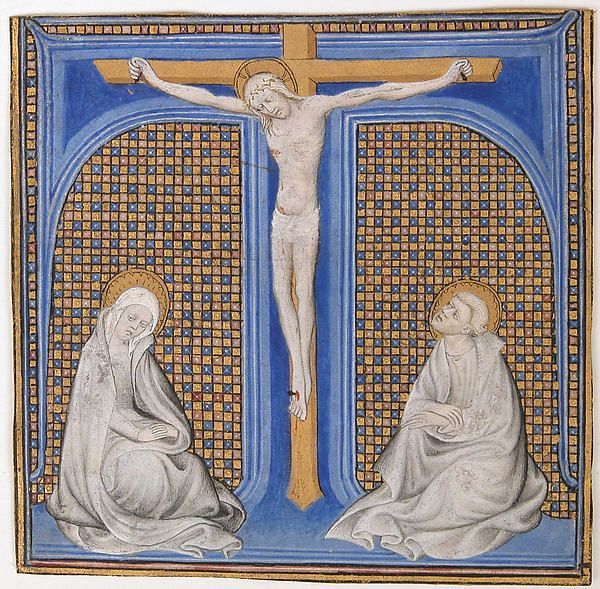Christ the King
Anima Christi Prayer
Review last meditation:
During week one, the desired fruit = To see sin for all its ugliness. The sacramental fruit of confession is also present. The last meditation of week one is called “The Kingdom of Christ”.
Topic: Christ the King [91]
Preparatory Prayer [46]: I will beg God our Lord for grace that all my intentions, actions, and operations may be directed purely to the praise and service of His Divine Majesty.
Mental Representation [91]: This is a mental representation of the place. Here it will be to see in imagination the synagogues, villages, and towns where Christ our Lord preached.
Grace: I will ask God for what I desire: Here it will be to ask of our Lord the grace not to be deaf to His call, but prompt and diligent to accomplish His most holy will.
Points [92-98]: Two parts
Part One:
- I will place before my mind a human king, chosen by God our Lord Himself, to whom all Christian princes and people pay homage and obedience.
- This will be to consider the address this king makes to all his subjects, with the words: “It is my will to conquer all the lands of the infidel. Therefore, whoever wishes to join with me in this enterprise must be content with the same food, drink, clothing, etc. as mine. So, too, he must work with me by day, and watch with me by night, ect., that has he has had a share in the toil with me, afterwards, he may share in the victory with me.”
- Consider what the answer of good subjects out to be to a king so generous and noble minded, and consequently, if anyone would refuse the invitation of such a king, how justly he would deserve to be condemned by the whole world, and looked upon as an dishonorable knight.
Part Two: The second part of this exercise will consist in applying the example of the earthly king mentioned above to Christ our Lord according to these points:
- If such a summons of an earthly king to his subjects deserves our attention, how much more worthy of consideration is Christ our Lord, the Eternal King, before whom is assembled the whole world. To all His people goes forth, and to each one in particular He addresses the words: “It is my will to conquer the whole world and all my enemies, and thus to enter into the glory of my Father. Therefore, whoever wishes to join me in this enterprise must be willing to labor with me, that by following me in suffering, he may follow in glory.”
- Consider that all persons who have judgment and reason will offer themselves entirely for this work.
- Those who wish to give greater proof of their love, and to distinguish themselves in whatever concerns the service of the eternal King and the Lord of all, will not only offer themselves entirely for the work, but will act against their sensuality and carnal and worldly love, and make offerings of greater value and of more importance in words such as these:
Eternal Lord of All Things:
Eternal Lord of all things, in the presence of Thy infinite goodness, and of Thy glorious mother, and of all the saints of Thy heavenly court, this is the offering of myself which I make with Thy favor and help. I protest that it is my earnest desire and my deliberate choice, provided only it is for Thy greater service and praise, to imitate Thee in bearing all wrongs and all abuse and all poverty, both actual and spiritual, should Thy most holy majesty deign to choose and admit me to such a state and way of life.
Additional Points for consideration:
Ignatius lived in a time when the idea of the King was taken for granted. It did not seem strange to them. We are not as used to the idea. There is probably some need to have this idea purified so that we are able to grasp the desire to serve Christ, the King.
“If a man has gotten a mood in which he is not able to feel wonder, then his cure must begin right at the other end”
There is something in human nature that desires to be led by good example, taught about the good, led to better things.
Secular examples of leaders that others wanted to follow:
Why are some people judged worthy to be followed? There are personal qualities – even in secular life – that move others to follow such people.
Mahatma Gandhi
Inspire millions around the world of all different classes: world leaders, scientists, philosophers, businessmen. He was considered by popular opinion to be one of the greatest leaders of the 20th century.
Qualities: peaceful, simple living that was the opposite of greed.
He actively fought against corruption and had principles by which he lived.
Nelson Mandela
South Africa’s first Democratically elected president; united a nation divided by racism
Qualities: a man of principle–it is said that he was neither a politician nor an opportunist, but a man deeply committed to improving the lives of his people and applying the same message of freedom and equality to all nations.
Mandela overcome injustice: he endured 27 years in jail, where he suffered cruel punishment and contracted an illness.
“It’s hard to think of many leaders in history who gave more to his cause than Nelson Mandela”
Abraham Lincoln
Popularly elected as President of the United States and is still considered one of the most honorable presidents of American history.
Qualities:
He was strong willed, a great communicator, and lived at a time when freedom, education, and economics were becoming increase sought after. Great moments are call for great leaders.
Lincoln was born poor; he lost mother at young age and was self-educated.
He was principled in his belief and was willing to stand alone on issues he thought true.
Winston Churchill
Elected by popular vote as the British Prime Minister, leading his country and the world during the Second World War.
Qualities:
Churchill gave heroic examples of virtue. His upright character was able to persevere in the mist of great difficulty — even on the brink of defeat to the Nazi Germany.
He possessed wisdom beyond a normal education and was admired for correct judgment in difficult matters.
Churchill had a bitter struggle with depression which he called the so-called “black dog” of his existence. Many attribute Churchill’s successes to his ability to overcome himself.
His power of oratory and unique personality helped him connect with an entire nation.
Churchill was determined to fight error: “Never give in. Never give in. Never, never, never, never – Never yield to force. Never yield to the apparently overwhelming might of the enemy.”
Even secular examples can help understand more fully why so many men and women have desired through the ages to serve a King.
The grace I am asking for is the grace that I may not be deaf to the call of Christ, but prompt in accomplishing his most holy will.

Take, Lord,
and receive all my liberty, my memory, my understanding, and my entire will, all that I have and possess. Thou hast given all to me. To Thee, O Lord, I return it. All is Thine, dispose of it wholly according to Thy will. Give me Thy love and Thy grace, for this is sufficient for me.
(Spiritual Exercises #234. Louis Puhl SJ, Translation.)


